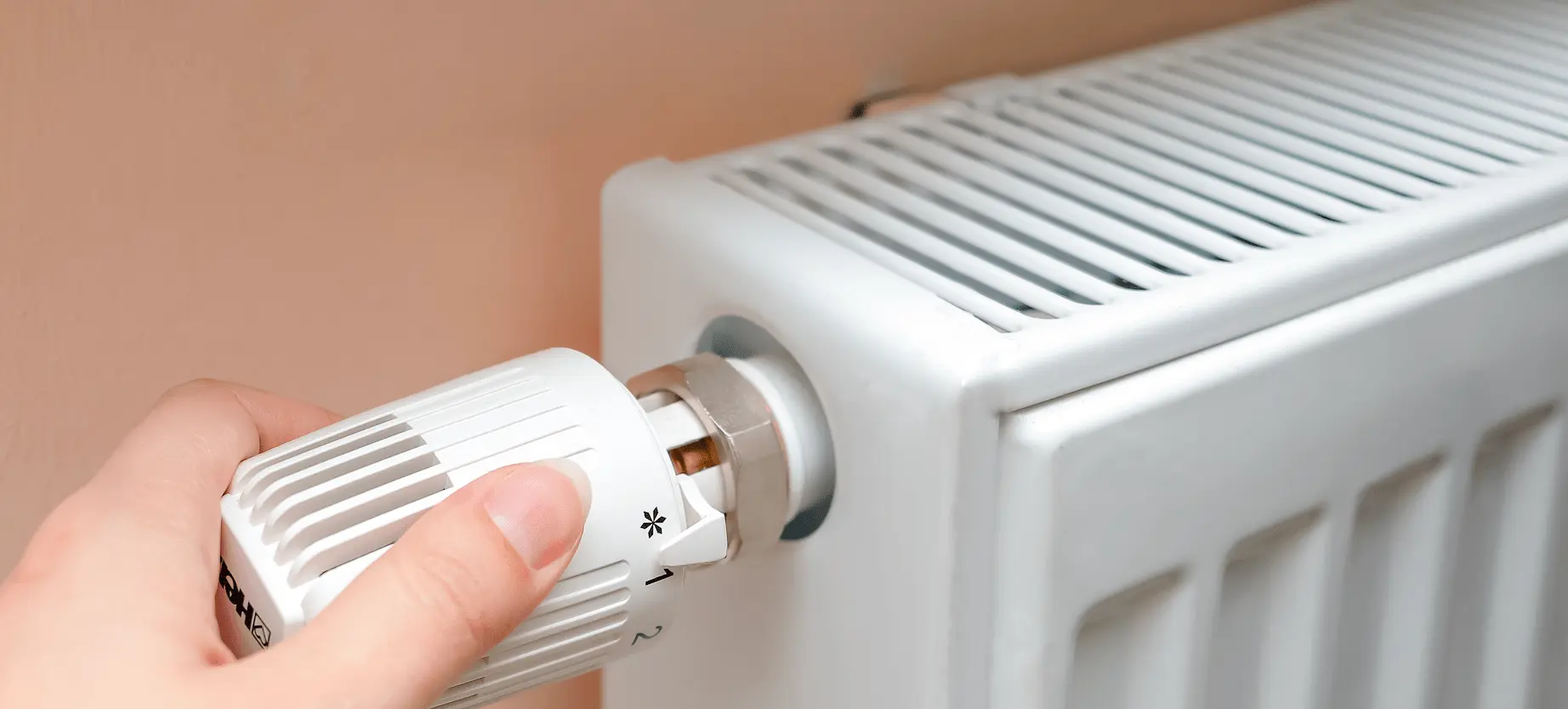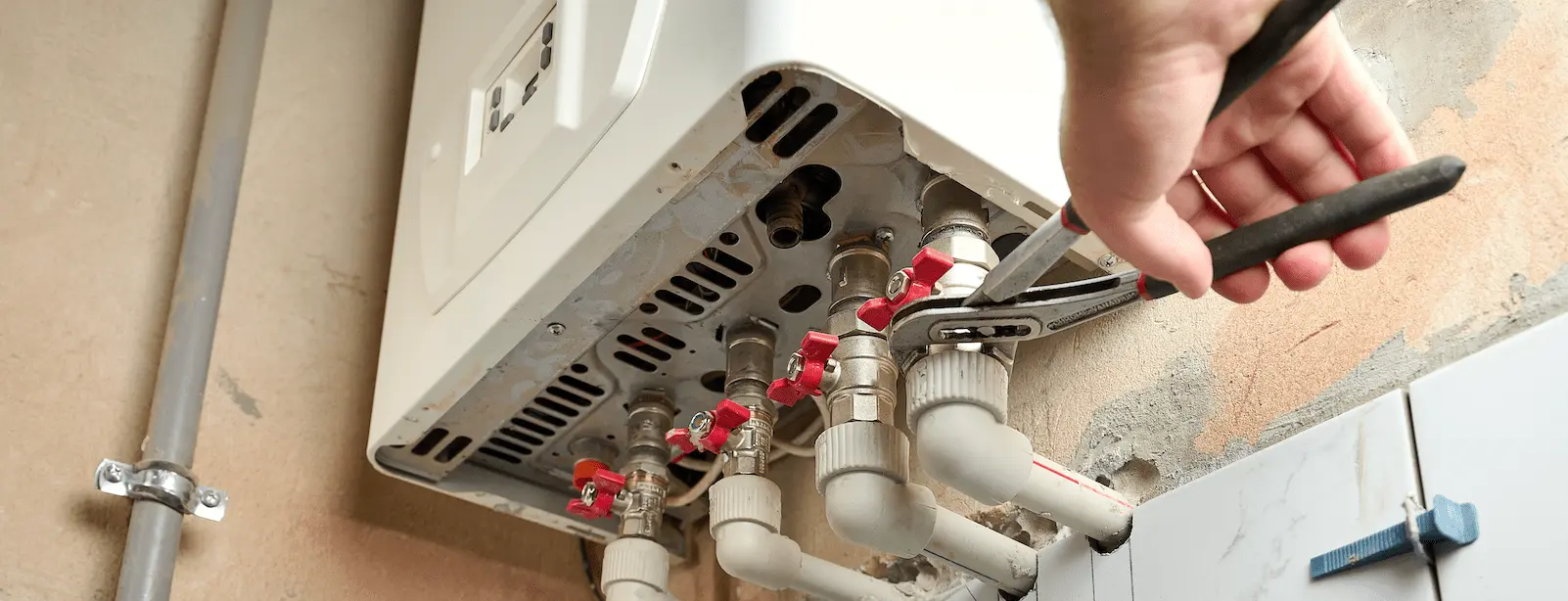
Landlord heating responsibilities: Ensuring compliance and tenant comfort
05-08-2025 | Property Maintenance & InteriorsHeating is an essential feature for tenants when living in a rental property, so it’s vital to understand landlord heating responsibilities. The landlord has a duty to provide heating. This article will break down the legal heating obligations landlords must meet under the Landlord and Tenant Act 1985 and the Homes (Fitness for Human Habitation) Act 2018.
We’ll also explain how to fulfil the landlord’s duty to provide heating when there are issues. We’ll highlight the importance of boiler maintenance and advise on staying compliant while ensuring tenants are comfortable during the winter months.
Landlord heating responsibilities
Under Section 11 of the Tenancy Act 1985, landlords must ensure the tenant has heating and hot water. Landlords are responsible for keeping the heating system in good working order and must carry out repairs if necessary. They are responsible for organising the annual inspection to obtain and provide tenants with a gas safety certificate.
Under the Homes (Fitness for Human Habitation) Act 2018, landlords must ensure the property is safe, healthy and free from things that could cause the tenants harm. If the heating is not in working order, the house will be too cold during the winter months, which could cause health issues for the tenant.
As a result of the two acts above, landlords need to ensure each room in the house is heated adequately to fulfil their landlord heating responsibilities.
The tenancy agreement should clearly outline the landlord’s duty to provide heating. It should also state that the tenant needs to report any issue with the heating system as quickly as possible. While the landlord should be doing property inspections, they can’t come every week to check that everything is in working order.

What counts as “adequate heating”?
The UK government states a cold home is one that cannot be maintained at a temperature between 18oc to 21oc at a reasonable cost. Therefore, landlords should provide heating that can warm the house to that temperature.
If the house is cold, the tenant can experience serious health issues. These can include respiratory problems, increased blood pressure, increased risk of a heart attack or general discomfort. If this is the case, the landlord will fail to meet their legal requirements and could face serious consequences.
What should a landlord do when a boiler breaks?
Unfortunately, problems out of your control can occur with the heating system. Those problems, such as a broken boiler, can leave the tenant in a cold house and the landlord in a stressful position as they look to fulfil the landlord’s heating responsibilities.
The landlord is responsible for repairs to the broken heating system. During cold weather, landlords should respond within 24 hours of the notification. They should organise a fix to fulfil their responsibilities outlined in the legal requirements.
If you do not respond to the tenant within 24 hours and ignore a follow-up, tenants can report the issue to their local council’s environmental health department. The local authority can inspect the property and take action against the landlord if heating rights in rental property are not fulfilled.

What happens if heating repairs cannot happen immediately?
Sometimes, even if the landlord responds immediately, it might not be possible to fix the problem within 24 hours. In that case, the landlord is still responsible for providing a safe and healthy home for the tenant. They should still aim to fulfil landord heating responsibilities.
The landlord should provide temporary solutions to ensure the tenants are not left without adequate heating. This is particularly important during cold winter months. Some examples of temporary solutions include:
- Electric heaters: The landlord could provide portable electric heaters to ensure adequate heating in the home. Landlords should be mindful of the potential increase in the electrical bill.
- Alternative washing facilities: Depending on the type of heating problem or the type of heating system, there’s a chance that the hot water may also be out of action. Landlords should try to provide alternative washing facilities.
- Alternative accommodation: In serious situations where landlord heating responsibilities are incomplete due to a system failure, tenants may need to move to temporary accommodation, such as a hotel or a B&B. The landlord is not legally obliged to pay, but may offer to do so as a goodwill gesture.
Some temporary solutions can differ depending on what is included in the tenancy agreement. For example, the tenancy agreement might state the landlord pays for alternative accommodation, so it is worth double-checking this to ensure you are following your obligations as a landlord.
The importance of boiler maintenance and regular servicing
While the landlord cannot guarantee a perfectly working heating system throughout the tenancy, they can take actions to prevent problems. Regular boiler maintenance and regular servicing can help look after the system. Issues may be spotted during the inspections, which an engineer can fix before they lead to a system failure.
Practical tips to stay compliant with landlord heating responsibilities
- Being friendly with a heating engineer: Building a positive relationship with a heating engineer may help you solve the problem quicker because they will provide you and could lead to discounts. This is easier if you have a portfolio of properties within close proximity.
- Prepare as best you can: Have emergency electric heaters ready and waiting.
- Save some funds: Have a spare pot of money specifically for repairs to heating systems. New boilers can be very expensive, so having spare money will be useful.
- Communicate clearly with tenants: Tenants can get annoyed if there are heating issues, so communicate respectfully, quickly and clearly with them to maintain a positive relationship.
It’s also important to invest in landlord insurance to help protect your property. We have the expertise to find the best landlord insurance deals that are suitable for your needs as a landlord. Contact us today at 01788 818 670 for a quote, and don’t forget to visit our resource centre for more information on how to be a successful landlord.
We won't be beaten on any like for like landlord insurance quote.
Get a quote